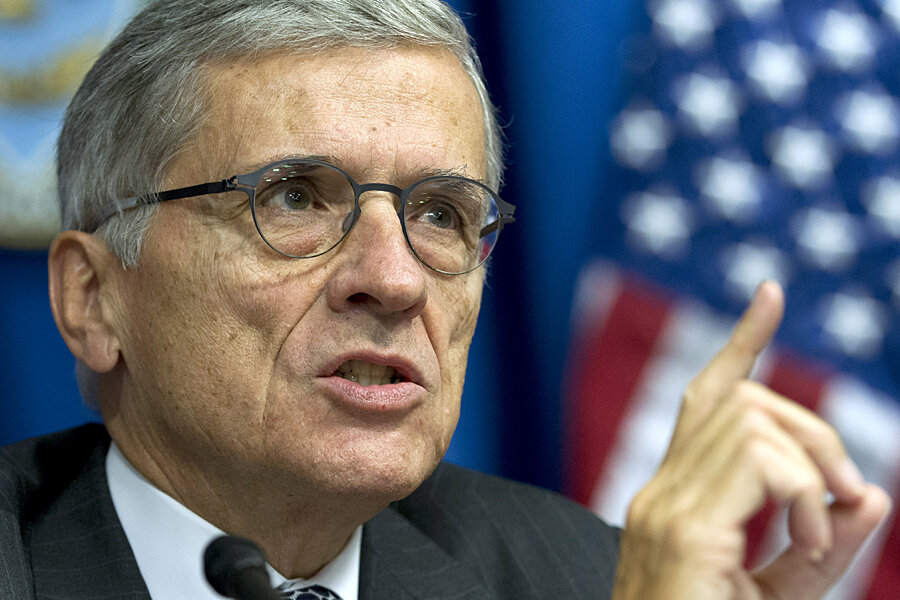What would FCC 'net neutrality' rules mean for you?
Loading...
The concept of a free and open internet, where everyone is treated equally, is getting a big boost this week.
Tom Wheeler, chairman of the Federal Communications Commission, says he’ll propose new rules this week that would prevent the providers who grant access to the Web from giving preferential treatment to some websites and content while punishing others because they didn’t pay for the privilege.
Under the “net neutrality” proposal, the FCC would be allowed to police Internet service as a utility in the same way it does radio, television, telephone and cable.
“The internet must be fast, fair and open,” Wheeler said Wednesday in a guest post for Wired. “That is the message I’ve heard from consumers and innovators across this nation. That is the principle that has enabled the Internet to become an unprecedented platform for innovation and human expression. The proposal I present to the commission will ensure the Internet remains open, now and in the future, for all Americans.”
What is ‘net neutrality?’
“Net neutrality” generally refers to the concept that all Web users should have equal access to its resources.
Supporters of the idea oppose, for example, Internet service providers (many of them big cable companies) who would like to give high-speed access to websites that pay for it while penalizing those that don’t with slower speeds.
Web activists argue that in 2015, Internet access is a basic right, and denying it, or giving preferential treatment to one person over another, violates that right.
The idea of net neutrality led to a set of rules from the FCC, which oversees the Internet in the United States, meant to prevent Internet service providers from blocking or “unreasonably discriminating” against any legal website or other piece of online content.
But those rules were criticized by some net neutrality fans as too weak. And early last year, a federal appeals court ruled that the commission doesn’t have the authority to enforce them.
Opponents argue that it’s a matter of free enterprise. Providers offer a service and should be able to decide how to deliver it and how much to charge, they say.
The Web’s largest service providers include Comcast, Verizon, Time Warner Cable, AT&T and Charter.
Wheeler’s plan
Wheeler, the former president of a startup in the early 1990s, calls his proposal “the strongest open Internet protections ever proposed by the FCC.”
They would ban both giving preferential treatment to websites that pay for it and hiding or slowing access to other content, as long as that content is legal.
The rules would also apply to mobile-phone Web access.
“My proposal assures the rights of Internet users to go where they want, when they want, and the rights of innovators to introduce new products without asking anyone’s permission,” Wheeler wrote.
Some version of Wheeler’s proposal is likely to meet with the board’s approval. Democrats, who have generally backed some version of net-neutrality proposals, hold a 3-2 advantage over Republicans on the commission.
In his State of the Union address, President Barack Obama called for a “free and open Internet.” Last year, he recommended strong net neutrality rules to the FCC that included classifying Web access as a utility.
Any rules the FCC approves, however, will be subject to challenges in court, a maneuver the service providers are almost certain to pursue. The Republican-controlled Congress may also choose to get involved, although any new legislation would be subject to a veto from Obama.







